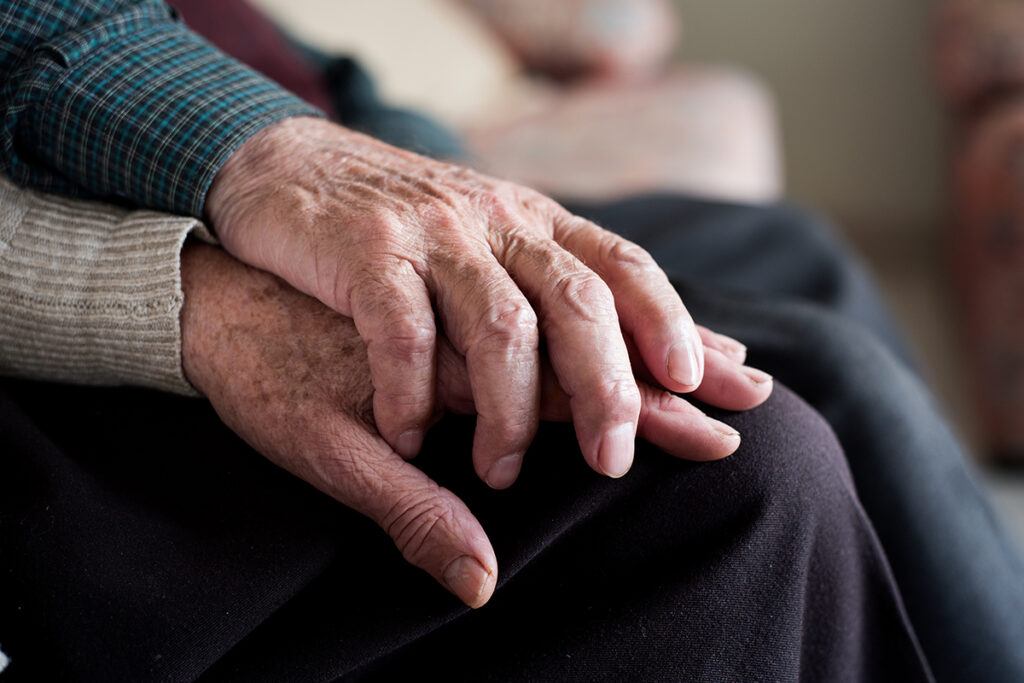“I feel like I’m losing all my power.” “Everyone is making decisions for me.” Partner of a 40+ year relationship communicates these feelings as she watches her partner fail and the “professionals” move in. The hospice nurse tells her she needs to put a hospital bed in the bedroom to make it easier for caregivers. Furniture would need to be moved, upsetting the status quo and causing the ill partner confusion and fear.
This would also mean moving the beloved dog’s bed from the room. Only the hospice nurse has complained about bending over the community bed.
The hospice nurse tells her to bring in help every day—not just 3 days a week. And yet, the number of people in and out of the house feels overwhelming to the well partner. Is help, during the end of life, really help? Do we, as professionals at every level (MD to attendant care), “take over” and become intrusive rather than supportive?
How can we be helpful, supportive and sensitive to these issues? What is really important to all who are experiencing this loss? Can there be a solution that will allow the couple of 40 years to continue to sleep together and have their beloved and calming dog in sight, or does the ill person need to be protected in a “hospital bed?”
Are we sensitive to the losses that are emotional and painful for both people being served? How might we deliver suggestions and help with decisions without taking over the power from a family, a couple or an individual? Can we help in spoonfuls rather than buckets? Are we comfortable or is the family comfortable? The majority of families we help as Professional Geriatric Care Managers are looking to us for advice, guidance, advocacy, and resources. They don’t want to give over their love, devotion, caring, or power.
They want support, not control. They need help with decisions, not dictates or orders. In the hospital bed situation, the client and the Professional Geriatric Care Manager talked about when it might really be needed. They discussed what bringing in the bed signaled to the well partner, and she grieved appropriately. They explored lots of options, including arranging for two beds so that they still could remain together.
Another option was raising the community bed, which could eliminate the need for a hospital bed. The client felt like she had her power back and knew the decision would be hers. If the ill partner’s health warranted the bed, she would order it and make room for it immediately. PGCMs know that the well partners often “overcare” at the risk of their own health.
When we approach our clients with options for sharing the care, we allow the focus of control to stay with the clients. In this situation, the PGCM has coached the “well partner” in choosing activities that balance her caregiving with self-care. As professionals who have the honor and privilege to be with clients for a length of time, we must always be sensitive to where the clients are, to join with them and to help them make the most difficult decisions. To not overwhelm them with our excellent suggestions or ideas—but to travel with and support them—we allow the control to be theirs!
Advocare Care Management is the preeminent place for care planning in South Florida. We are senior advocates that offer you the resources, tools, assessments, advice, and contacts to care for a loved one. We work with seniors throughout Broward, Palm Beach, and Miami-Dade counties. You can reach us 24 hours a day including off-peak hours. Contact us today and let us help you to care for a loved one.
Reprinted with permission from Aginglife.org. Advocare Care Management is here to help and makes things easier for everyone.

